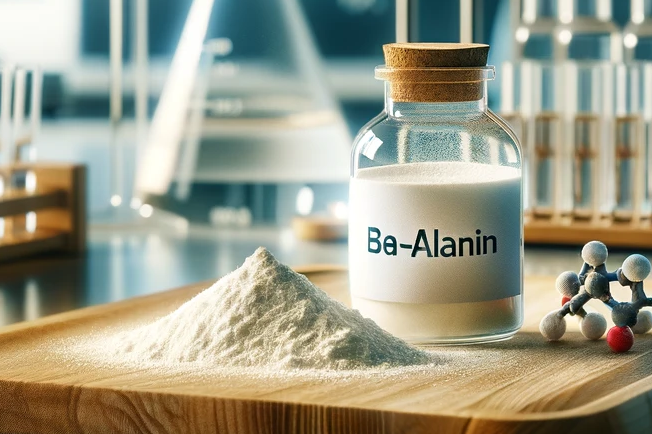Creatine

What is creatine?
Creatine is a naturally occurring organic acid found in small amounts in certain foods such as meat and fish and is produced in the bodies of mammals, including humans and dogs. It plays a central role in providing energy to muscles by helping to regenerate adenosine triphosphate (ATP), a key source of energy for muscle contractions.
Benefits of creatine for dogs
Supporting muscle energy
Creatine can theoretically increase energy availability in dogs' muscles, which could be particularly useful during high levels of physical exertion. This could benefit working and sporting dogs by allowing them to improve their performance or last longer.
Promoting muscle mass and strength
As in humans, creatine could also help increase muscle mass and strength in dogs by promoting water retention in the muscles and supporting protein biosynthesis.
Potential recovery support
Some studies suggest that creatine may shorten the recovery period after intense physical activity and reduce muscle damage and inflammation.
Disadvantages and risks
Despite the potential benefits, there are also concerns and risks that need to be considered when supplementing creatine in dogs.
Dehydration and kidney stress
Creatine increases water retention in the muscles, which can lead to increased stress on the kidneys and increase the risk of dehydration, especially if not enough fluid is supplied.
Unclear dosage guidelines
There are no clearly defined dosing guidelines for creatine for dogs, which makes correct and safe supplementation difficult. Overdosing could lead to health problems.
Lack of long-term studies
There is limited research on the long-term effects of creatine on dogs. Without comprehensive data, it is difficult to fully evaluate the safety and efficacy of creatine as a supplement for dogs.
Careful consideration is key
Creatine offers both potential benefits and risks for dogs. While it could improve muscle energy and performance, the risks of dehydration and kidney stress are serious. It's important to maintain a balanced perspective and recognize that a natural, balanced diet, regular exercise and veterinary care remain the cornerstones of your dog's health and well-being. Creatine can be beneficial for certain dogs in certain circumstances, but it should never be seen as a miracle cure or a substitute for good care and nutrition.
If you notice any signs of hypersensitivity or poisoning in your dog, you should see your vet immediately. We are not a substitute for a vet, but we try to be as accurate as possible. Every dog reacts differently and we recommend you get a second opinion or consult your vet if in doubt.
Stay healthy and take good care of your four-legged friend!😊
Similar to Creatine
Protein is an organic compound consisting of amino acids. There are 20 different amino acids that can be combined in various ways to form proteins. The dog's body can produce some amino acids...
Dogs are naturally active animals that need a lot of exercise. Working and sporting dogs in particular, which participate in disciplines such as agility, dog frisbee, flyball, canicross, bikejoring,...
Beta-alanine is a non-essential amino acid, which means that the body can produce it itself. It is mainly found in meat and fish, where it is bound to other amino acids. The most important compounds...
Glutamine is a non-essential amino acid, which means that the body can synthesize it from other amino acids. Glutamine is the most abundant amino acid in blood plasma and muscle cells. Glutamine has...



